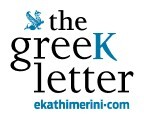 |
Lightning and Falcons [AP Photo/Danny Karnik] [AP Photo/Danny Karnik]
Welcome to the weekly round-up of news by Kathimerini English Edition. The Hellenic Air Force will enter the next era of aerial deterrence capabilities with the acquisition of fifth-generation F-35 Lightning II fighter jets. The deal was officially announced on Friday when the United States Department of State formally informed Congress that it had greenlit the sale of up to 40 fighters to Greece. The positive Letter of Acceptance is expected to arrive at the Defense Ministry on Monday for the start of negotiations. The LOA will need to be approved by Congress, but it is largely considered a done deal. Prime Minister Kyriakos Mitsotakis hailed the decision, stating that it is “an important day for our national defense and for Greek diplomacy”, adding that it “highlighted and sealed the strategic depth of Greek-American relations.” “We have sought to work closely with Greece to advance our shared interests and promote international peace and security,” confirmed Secretary of State Antony Blinken in his letter to the prime minister, noting that “this strong bilateral relationship is a testament to the enduring links between our nations.” Additionally, the Hellenic Armed Forces will receive up to 200 million dollars in Foreign Military Financing as well as two C-130 aircraft, 60 Bradley Infantry Fighting Vehicles, and, pending Congressional approval, four littoral combat ships and three Protector-class coastal patrol boats to bolster the Hellenic Navy. These will all be provided to Greece as Excess Defense Articles transfers. Mitsotakis stated that this is a “very large package of equipment for free, which decisively strengthens all three branches of the armed forces, as well as the Hellenic Coast Guard.” At the same time, the State Department also announced the sale of 40 F-16 Block 70 Fighting Falcon fighter jets to Turkey as well as modernization kits for another 79 fighters. The move comes a day after Turkish President Recep Tayyip Erdogan finally approved of Sweden’s bid to join NATO. Spotlight
|
MUST READS
|
 [Shutterstock] [Shutterstock]The decision by the United States to offer Greece and Turkey advanced fighter jets, that will significantly enhance their military might, has different repercussions for the two Aegean neighbours. Naturally, most analysts point to the quality and capabilities of the weaponry, but an important dimension is also their purpose and use; how each of the two countries plans to utilise the new and upgraded military equipment differs substantially. For Greece, it will serve defensive needs. There are no expansionist aims, no “borders of our heart” that extend beyond the present internationally recognized ones. That is not necessarily the case with our neighbour to East which boasts about its military presence and role in the broader region, often emphasizing, directly or indirectly, a sense of “continuity” with the Ottoman Empire. The purpose of this brief note is obviously not to enter into a historical reflection, not even to touch upon issues of military superiority on this or that level. It is simply to point out that it is theoretically surreal and practically unacceptable within the context of an alliance, that one member might use weapons the leader of this alliance provides it with, against another. That said, and in the context of the delicate balancing act under way, Washington should actively ensure the weapons are indeed not used against a fellow NATO member, while in the same spirit, continue its diplomatic engagement to bring the two countries closer, building on the positive momentum of the last twelve months. |
 Greek real estate prices continue to climb, even in areas where new available properties have entered the market. Overall, the availability of properties for sale both in Athens and Thessaloniki remains relatively low while there is still a high level of demand and few new builds. This points to a significant divergence between the expectations of sellers and those of prospective buyers, who seem unwilling to meet the asking prices. This has sent prices soaring in many areas, with the majority of Greece’s domestic buyers unable to afford the current asking prices. Greek real estate prices continue to climb, even in areas where new available properties have entered the market. Overall, the availability of properties for sale both in Athens and Thessaloniki remains relatively low while there is still a high level of demand and few new builds. This points to a significant divergence between the expectations of sellers and those of prospective buyers, who seem unwilling to meet the asking prices. This has sent prices soaring in many areas, with the majority of Greece’s domestic buyers unable to afford the current asking prices. |

|
| “The Athens Exchange (ATHEX) general index closed at 1,360.89 points on Friday, up 1.56% from last week. Overall, the benchmark has gained 5.24% in 2024 so far.” |
| “The state budget balance for the period between January and December last year recorded a 3.76 billion euro deficit, with a target deficit of 8.34 billion euros, with a state budget primary balance (on a modified cash basis) surplus of 3.92 billion euros, against a primary deficit target of 851 million euros.” |
| “The commercial real estate market (offices, shops, hotels, and logistics) saw a record high in 2023, with investments exceeding 2 billion euros. This marks an increase of 22% from the year before. The development, instigated primarily by domestic investors, is very positive against a backdrop of a negative international climate.” |
|
Editor's Pick But those who supported Israel in difficult times feel very worried, maybe even angry.Read the article But those who supported Israel in difficult times feel very worried, maybe even angry.Read the article |
| We’d like to hear from youShare your feedback at newsletters@ekathimerini.com |
| Did you receive this email from a friend?Subscribe to our newsletters here |
 |
| Kathimerini English Edition is published as a single paper withthe International Edition of NYTimes |




No comments:
Post a Comment